GCDD e-news - December 2024

A Digital Newsletter from the Georgia Council on Developmental Disabilities • December 2024
The Georgia Council on Developmental Disabilities newsletter keeps you up-to-date on the latest news, from what’s happening with public policy in Georgia to updates on current issues affecting Georgians with developmental disabilities to upcoming events.
In This Issue:
- Letter from the Editor
- GCDD's 2025 Advocacy Days: Uniting Voices for Disability Rights in Georgia
- Public Policy for the People: 2024 Election Recap and Update
- GCDD Welcomes New Staff and Council Members
- Raising Teens with Disabilities: GCDD Council Member Shares Her Story
- Promoting Inclusion in Georgia: A Visit to Woodright and Shaw Industries
- Calendar of Events
Letter from the Editor
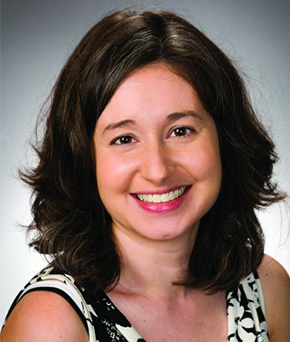
What have you obsessed over lately?
If your brain just screamed, “THE NATIONAL ELECTION,” I am right there with you.
To get very real, I’ve struggled to write this article. The original idea was for me to share my perspective after two years at the helm of the Georgia Council on Developmental Disabilities (GCDD) – what we’ve done, what I’ve learned, and where I hope to guide the organization. But I keep getting distracted. The media updates are everywhere. Social media, ditto. Some Georgians are rejoicing. Some Georgians are despairing. And some – the quiet ones, perhaps – are probably thinking elected leadership doesn’t make that much difference, anyway.
In the middle of all that – my thoughts felt very small.
And that’s where I was wrong.
Elections profoundly impact the disability community, but elections are one piece of the process. Governing goes on 365 days a year, and decisions, action, and advocacy do too.
GCDD is, and will always be, centered on the lives, experiences, and wisdom of Georgians with developmental disabilities (DD) and their families. Our mission hasn’t changed. We are here to make social and policy changes so that Georgians with developmental disabilities and their families can live, learn, work, play and worship in their communities.
Over the past two years, I’m incredibly proud of our advocacy, our communications, and our projects. I’m incredibly proud of our staff and the relationships we’ve built. Our established members have given us their time and talent and insights as we’ve navigated a season of great change, and this summer, we were thrilled to welcome a powerful new group of members to our mix.
So, what’s on the horizon for us? It’s time for a new master plan. And to steer our plan in the right direction, we need to hear from you.
Every five years, GCDD creates a strategic plan. Come 2025, we’re officially putting our shoulders to the wheel to begin building the agency’s next plan and strategy.
Our former Executive Director used to say, “No stories without data, no data without stories.” I think that summarizes the main ingredients of our big strategic plan. We’re going to be drilling down into reports and numbers around what different aspects of life are like for Georgians with DD and their families, like health care, education, employment and transportation. We can dive into a number of sources for that kind of data. We need the raw experiences and insights from you.
Keep your eye on our channels in the coming months for different ways that you can share your experiences and ideas with us. Each person’s insight is a puzzle piece. Our job is to put that puzzle together to get a vivid picture of the current strengths and needs of our community – giving our Council members the perspective they need to decide where to concentrate our power over the next five years.
Be well this holiday season and as we go into 2025 – let’s roll up our sleeves and figure out the future together.
D’Arcy Robb
Executive Director, GCDD

GCDD's 2025 Advocacy Days: Uniting Voices for Disability Rights in Georgia
by Charlotte Densmore, GCDD Public Policy Director
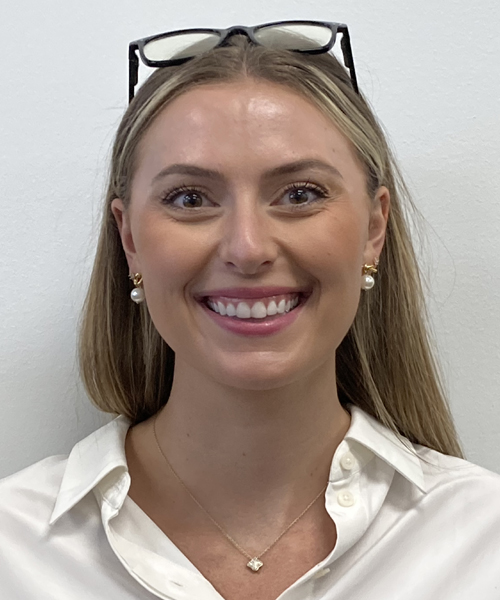 The Georgia Council on Developmental Disabilities (GCDD) is excited to announce its 2025 Advocacy Days, a series of events dedicated to advancing disability rights and support in Georgia. These three days are designed to mobilize advocates, allies, and community leaders around key legislative issues impacting individuals with intellectual and developmental disabilities (I/DD). This year, GCDD will focus on employment rights, increasing access to the New Option Waiver Program (NOW)/Comprehensive Supports Waiver (COMP) program, and establishing a new I/DD Innovation Commission. The proposed dates for each day are as follows (please note that these dates are subject to change depending on the legislative calendar, announced in early January):
The Georgia Council on Developmental Disabilities (GCDD) is excited to announce its 2025 Advocacy Days, a series of events dedicated to advancing disability rights and support in Georgia. These three days are designed to mobilize advocates, allies, and community leaders around key legislative issues impacting individuals with intellectual and developmental disabilities (I/DD). This year, GCDD will focus on employment rights, increasing access to the New Option Waiver Program (NOW)/Comprehensive Supports Waiver (COMP) program, and establishing a new I/DD Innovation Commission. The proposed dates for each day are as follows (please note that these dates are subject to change depending on the legislative calendar, announced in early January):
Employment/IPSE Day: January 29
Waivers Day: February 12
I/DD Commission Day: February 26
Each Advocacy Day will bring together community members, legislators, and advocates to ensure that the voices of those with I/DD are represented at the Capitol. GCDD’s commitment to equity, inclusion, and systemic change underpins each day’s unique focus.
Employment/IPSE Day – January 29
GCDD’s first Advocacy Day will center on ending subminimum wages and promoting employment for individuals with disabilities. This year, Inclusive Postsecondary Education (IPSE) students and programs across Georgia will join GCDD in expressing gratitude for last year’s $1.5 million investment while also advocating for the end of 14(c) certificates. Their presence represents a natural fit, as IPSE programs prepare students for competitive employment, independence, and self-advocacy—aligning directly with the goal of eliminating the outdated 14(c) certificates that allow employers to pay individuals with disabilities below the minimum wage. Their involvement will strengthen the call to eliminate subminimum wages in Georgia and create inclusive, meaningful employment opportunities for all.
Waivers Day – February 12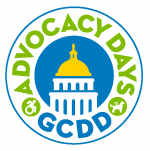
Waivers Day will highlight the critical need for more NOW/COMP Medicaid waivers to support individuals with disabilities who require home and community-based services. GCDD will continue advocating for an additional 2,400 waivers based on recommendations from a 2022 Senate study committee, a vital step toward reducing Georgia’s long waiver waitlist. Increased access to NOW/COMP waivers would empower individuals with I/DD to live independently and thrive within their communities.
I/DD Commission Day – February 26
The final Advocacy Day will focus on creating an I/DD Innovation Commission in Georgia. Modeled after the successes of Georgia’s behavioral health commission, the I/DD Commission would bring together experts and advocates to drive forward policy changes and innovative solutions for the I/DD community.
GCDD’s 2025 Advocacy Days offer a powerful platform for change, where advocates and allies will unite to shape a brighter future for people with disabilities across Georgia. Please stay tuned for registration and join us in amplifying the call for equity, inclusion, and opportunity for all.

Public Policy for the People: 2024 Election Recap and Update
by Charlie Miller, GCDD Legislative Advocacy Director
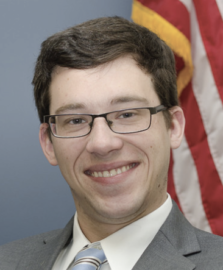 Hello advocates!! How in the world are you doing?
Hello advocates!! How in the world are you doing?
Welcome to a special edition of Public Policy for the People. My name is Charlie Miller, and I am the Legislative Advocacy Director for the Georgia Council on Developmental Disabilities (GCDD). The dust of the 2024 election cycle has finally settled, and the results are in. A lot of work was done around the presidential election, but we must not forget that every Senate and House seat of the Georgia Legislature and some local races were also up for election. Throughout this article we will go over the presidential election and some key Georgia House and Senate races.
The presidential election was held between Vice President Kamala Harris and President-elect Donald Trump. Millions across the country saw how candidates worked diligently to get votes from the American people. People saw countless TV campaign advertisements, phone calls, text messages, and even direct mail from the different parties and candidates running for office.
Georgia is known as a swing state within the Electoral College. Every state has a certain number of electors that feed into the Electoral College. To win the presidency a candidate must get to 270 electoral votes. Georgia is considered a swing state because during the 2020 presidential election, Georgia became a blue state, when a majority of Georgians voted to elect President Joe Biden, a Democrat, to receive Georgia's electoral votes. The last time this happened was in 1992 when the state chose former President Bill Clinton, also a Democrat, to win.
During this year’s presidential campaign, Vice President Kamala Harris and President-elect Donald Trump visited and campaigned continuously throughout Georgia, even down to the last days of the election, working to get the support and votes from Georgians. This year, Georgia swung back towards the Republican side and voted for President-elect Donald Trump. This shows how Georgia and other swing states, including Arizona, Michigan, Pennsylvania, and Nevada, can help determine the outcome of a presidential election.
Georgia’s Senate and House seats did not change much during this election cycle. The Republicans still hold the state’s Senate and House with the majority.
For full election results of the presidential election, visit the Georgia Secretary of State's website and click on election results.
We are heading into a new two-year legislative cycle. That means any legislation passed that did not get signed into law during the last legislative cycle has to start over. This is a great opportunity for GCDD to support new legislation and push disability policies within the state by working hard with state legislators to ensure they understand that disability policy is public policy.
The Georgia legislative session will officially kick off Monday, January 13, 2025, and it will go on for 40 nonconsecutive days. This means GCDD and Georgia’s disability community can really push for disability legislation. Additionally, we also look forward to hosting our annual GCDD Advocacy Days where GCDD, along with self-advocates, family members, providers, and others, go to the Georgia State Capitol and advocate in person for disability rights and policies. For more information about GCDD Advocacy Days, see the “GCDD’s 2025 Advocacy Days: Uniting Voices for Disability Rights in Georgia” article in this newsletter.
The GCDD Public Policy team anticipates the 2025 legislative session will be exciting and we hope you will join us in our advocacy to ensure Georgia state representatives are prioritizing the needs of the disability community. For more information, visit https://gcdd.org/public-policy.

GCDD Welcomes New Staff and Council Members!
New GCDD Staff
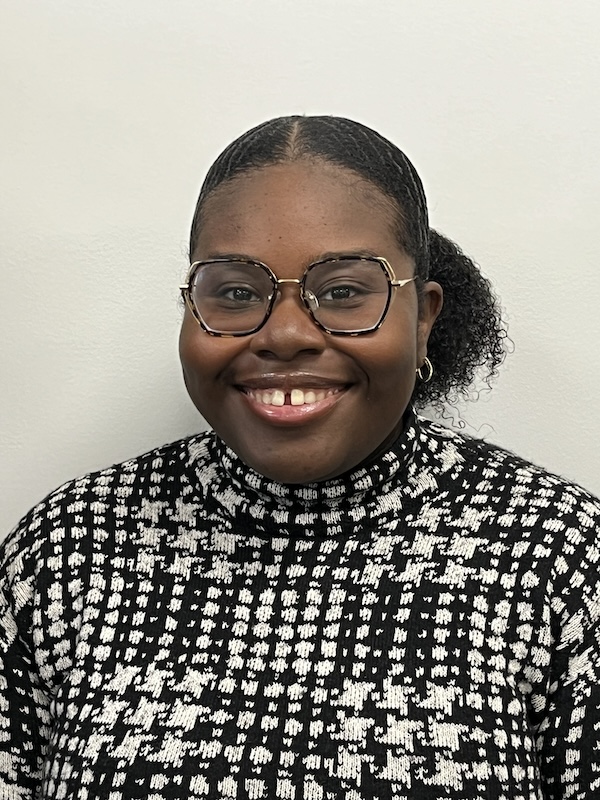 Fanta MitchellFanta Mitchell, the Georgia Council on Developmental Disabilities’ (GCDD) new Office Manager and Membership Coordinator studied International Affairs and Global Health at Mercer University in Atlanta, Georgia. There she obtained her Bachelor’s degree and since graduating, she has worked in the public sector beginning with nonprofit work until landing her current role with GCDD. In this role, she supports GCDD’s council members and staff in the agency’s day-to-day operations. During her free time, she enjoys trying new foods, exploring various hiking trails, and reading a good book. Fanta is a South Carolina native but has lived in the metro Atlanta area for the past 12 years. She will celebrate her first year as GCDD’s Office Manager and Membership Coordinator in January 2025.
Fanta MitchellFanta Mitchell, the Georgia Council on Developmental Disabilities’ (GCDD) new Office Manager and Membership Coordinator studied International Affairs and Global Health at Mercer University in Atlanta, Georgia. There she obtained her Bachelor’s degree and since graduating, she has worked in the public sector beginning with nonprofit work until landing her current role with GCDD. In this role, she supports GCDD’s council members and staff in the agency’s day-to-day operations. During her free time, she enjoys trying new foods, exploring various hiking trails, and reading a good book. Fanta is a South Carolina native but has lived in the metro Atlanta area for the past 12 years. She will celebrate her first year as GCDD’s Office Manager and Membership Coordinator in January 2025.
New GCDD Council Members
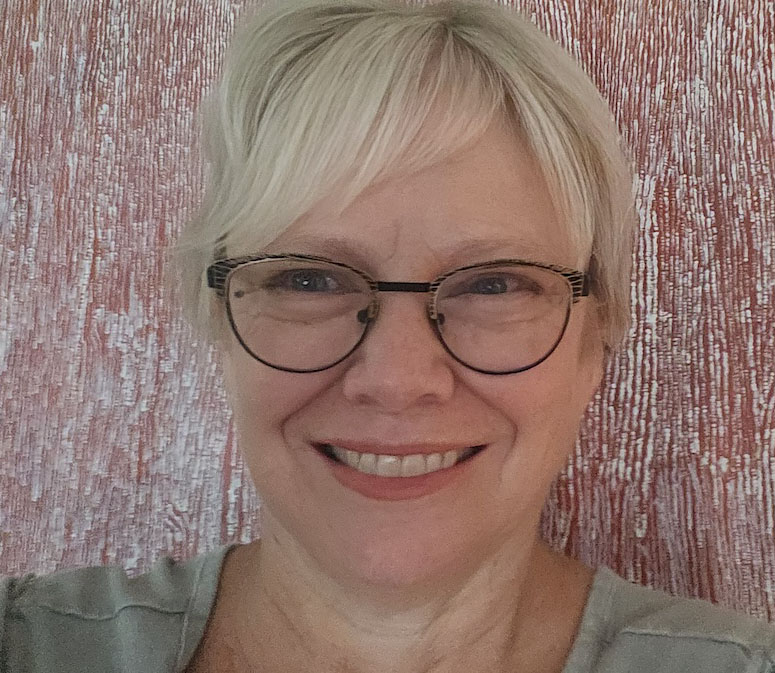 Jennifer SnyderJennifer Snyder is an autistic self-advocate and council member. She is an artist with a background in theology and is happily a part of the disability community. She loves animals, writing, and anything where she can use her creativity. Being creative allows her to feel like she can make a difference in her community. Jennifer works for an advocacy center where she collaborates every week with other people in the disability community. She believes in the power of voices in the disability community that can transform society.
Jennifer SnyderJennifer Snyder is an autistic self-advocate and council member. She is an artist with a background in theology and is happily a part of the disability community. She loves animals, writing, and anything where she can use her creativity. Being creative allows her to feel like she can make a difference in her community. Jennifer works for an advocacy center where she collaborates every week with other people in the disability community. She believes in the power of voices in the disability community that can transform society.
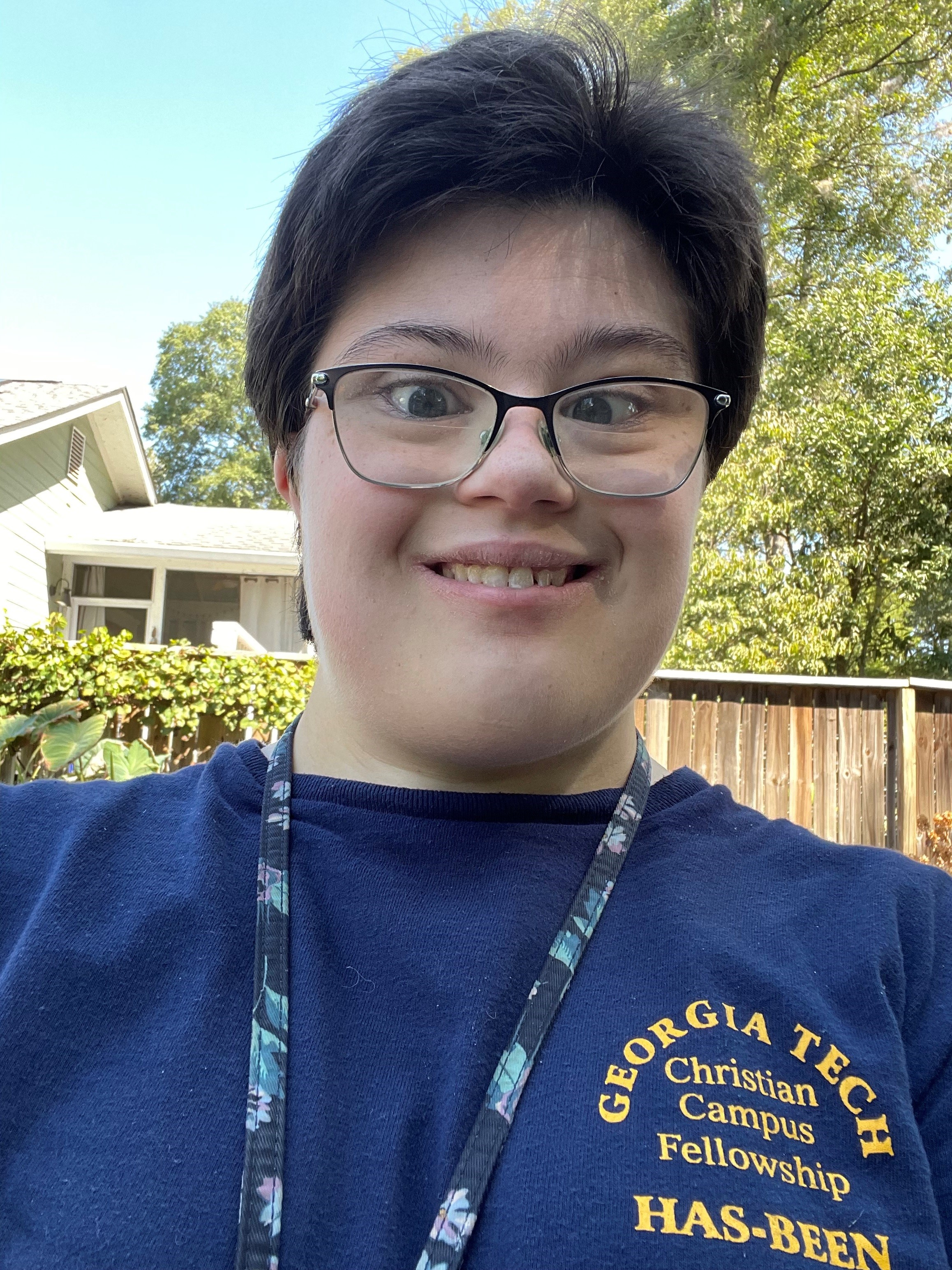 Martha HaythornMartha Haythorn is a young woman with Down syndrome from Decatur, Georgia. She is a new GCDD council member and self-advocate who advocates for disability rights in Georgia. She believes in equality in public policy for disability rights. In her free time, Martha loves to sing, read, swim, and learn new things. She also enjoys listening to music, watching movies, and going to see musicals. In October, Martha was recognized with the Laura Lee Leadership Award and will receive the Luminary of the Year Award in March of 2025.
Martha HaythornMartha Haythorn is a young woman with Down syndrome from Decatur, Georgia. She is a new GCDD council member and self-advocate who advocates for disability rights in Georgia. She believes in equality in public policy for disability rights. In her free time, Martha loves to sing, read, swim, and learn new things. She also enjoys listening to music, watching movies, and going to see musicals. In October, Martha was recognized with the Laura Lee Leadership Award and will receive the Luminary of the Year Award in March of 2025. 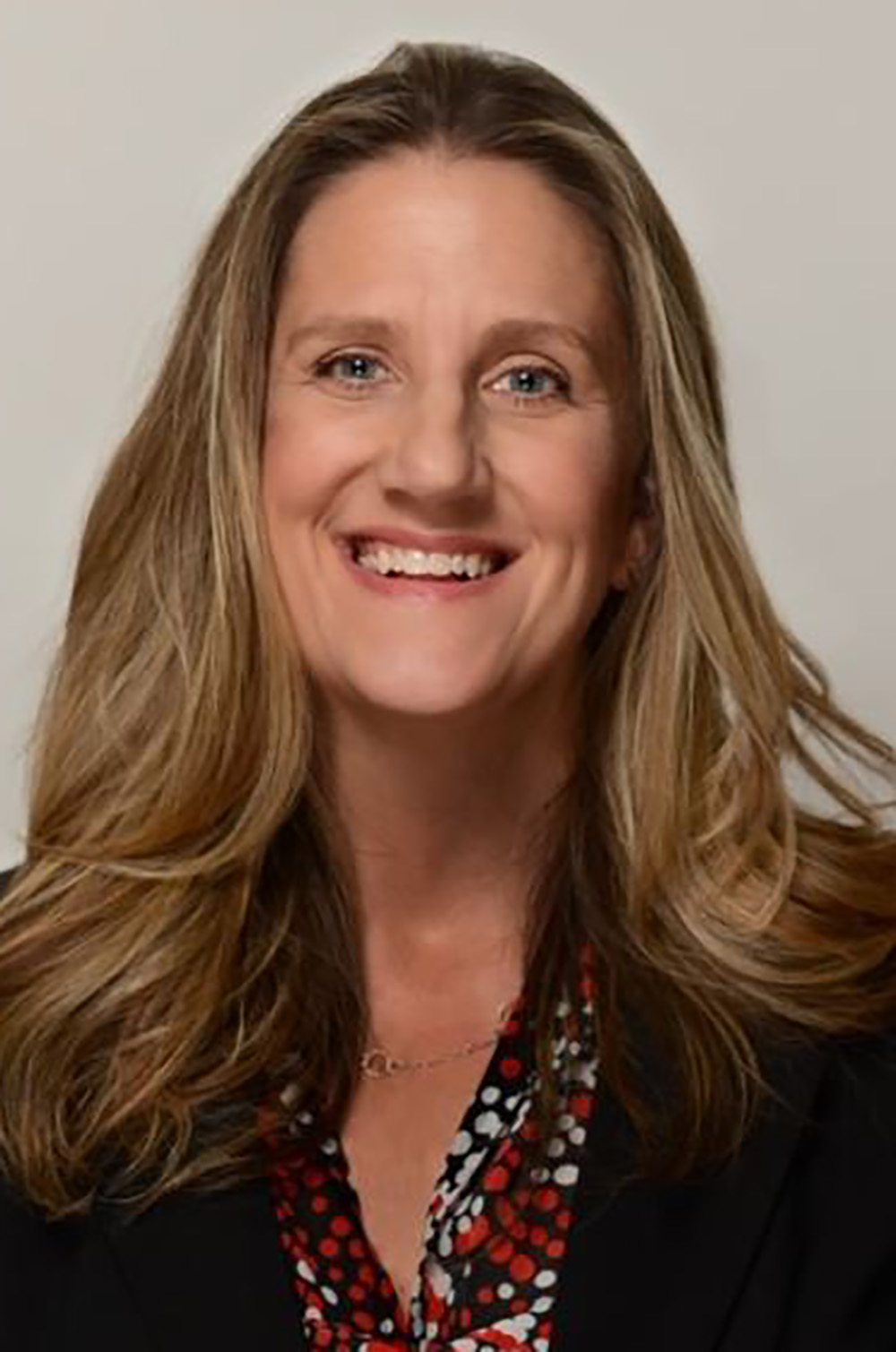 Dayna Holbel, MEd
Dayna Holbel, MEd
Dayna Holbel, MEd is a dedicated member of the Education and Transition Team at the Emory Autism Center. Dayna works hand-in-hand with students, parents, educators, and other professionals to help pave the way for bright futures for individuals with autism through the Individualized Transition to Adulthood Plan. Dayna received her Bachelor’s degree in English and History from the University of Michigan, and her Master’s Degree in Special Education and Transition from Wayne State University. She enjoys musical festivals and concerts, spending time with family and friends, and exploring her intown neighborhood with her two dogs. Dayna brings a wealth of knowledge and dedication to the table and is happy to serve as a GCDD council member.
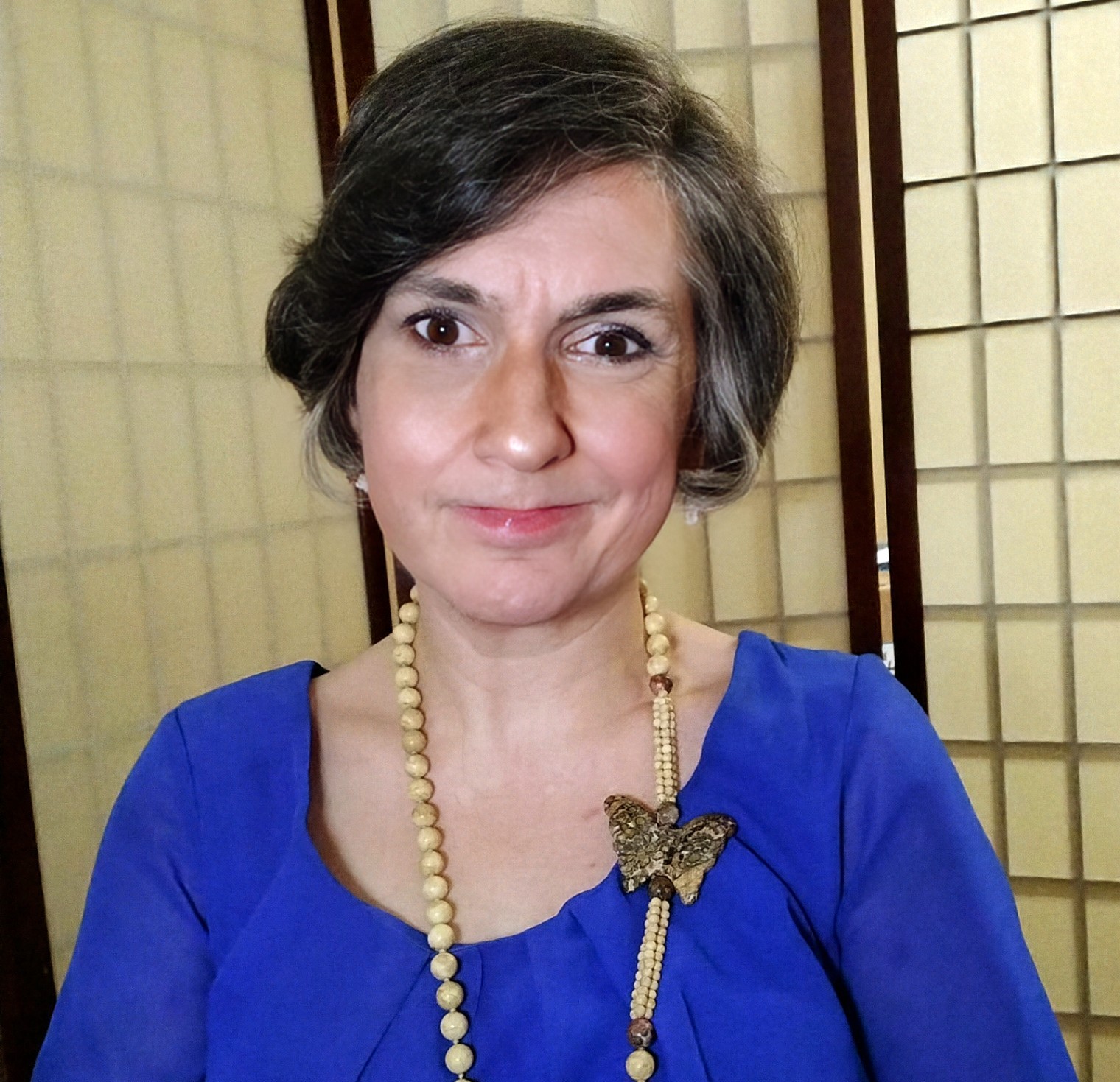 Jessica Winowich CowellJessica Winowich Cowell lives in Columbus, Georgia with her beautiful “menace” of a dog Casper. She studied Theatre Education at Columbus State University and has worked in advocacy in Columbus, Georgia for disability rights in a variety of ways. Jessica has cerebral palsy and hopes that by being on the Council she can help make Georgia an even better place for people in the disability community.
Jessica Winowich CowellJessica Winowich Cowell lives in Columbus, Georgia with her beautiful “menace” of a dog Casper. She studied Theatre Education at Columbus State University and has worked in advocacy in Columbus, Georgia for disability rights in a variety of ways. Jessica has cerebral palsy and hopes that by being on the Council she can help make Georgia an even better place for people in the disability community.
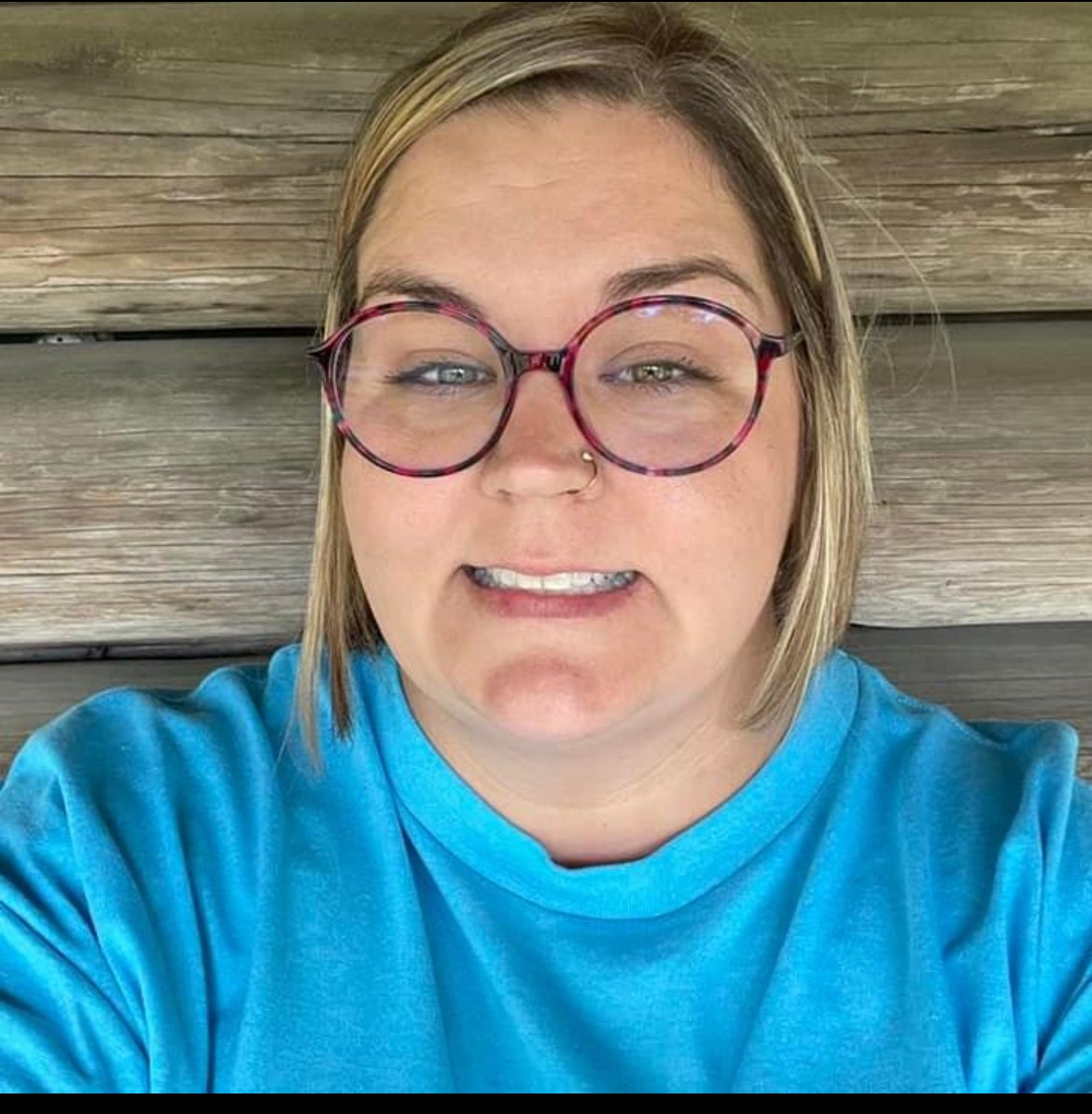 Crystal StackpoleCrystal Stackpole is a lifelong resident from Walker County. She recently got married to her husband, Michael, and became a stepmother of a beautiful nine-year-old named Addie. She is a sibling advocate for her brother, Tra, who is 35 with Down syndrome. Crystal is also a pet parent to three beautiful dogs and four curious cats. She has a bachelor’s degree in early childhood education with an English to Speakers of Other Languages (ESOL) endorsement, and an associate’s degree in sociology from Dalton State College. Additionally, Crystal has a master’s degree in outdoor education from Southern Adventist University near Chattanooga, Tennessee and is obtaining her second Masters degree in challenging behaviors from Southeastern Oklahoma State University. In her spare time, Crystal enjoys gardening in her small vegetable and flower garden. She said she enjoys giving her husband a hard time and spending time with her family. She and her family enjoy taking advantage of the attractions in their community, traveling to new places, and they are diehard Georgia Bulldogs fans … Go DAWGS!
Crystal StackpoleCrystal Stackpole is a lifelong resident from Walker County. She recently got married to her husband, Michael, and became a stepmother of a beautiful nine-year-old named Addie. She is a sibling advocate for her brother, Tra, who is 35 with Down syndrome. Crystal is also a pet parent to three beautiful dogs and four curious cats. She has a bachelor’s degree in early childhood education with an English to Speakers of Other Languages (ESOL) endorsement, and an associate’s degree in sociology from Dalton State College. Additionally, Crystal has a master’s degree in outdoor education from Southern Adventist University near Chattanooga, Tennessee and is obtaining her second Masters degree in challenging behaviors from Southeastern Oklahoma State University. In her spare time, Crystal enjoys gardening in her small vegetable and flower garden. She said she enjoys giving her husband a hard time and spending time with her family. She and her family enjoy taking advantage of the attractions in their community, traveling to new places, and they are diehard Georgia Bulldogs fans … Go DAWGS!
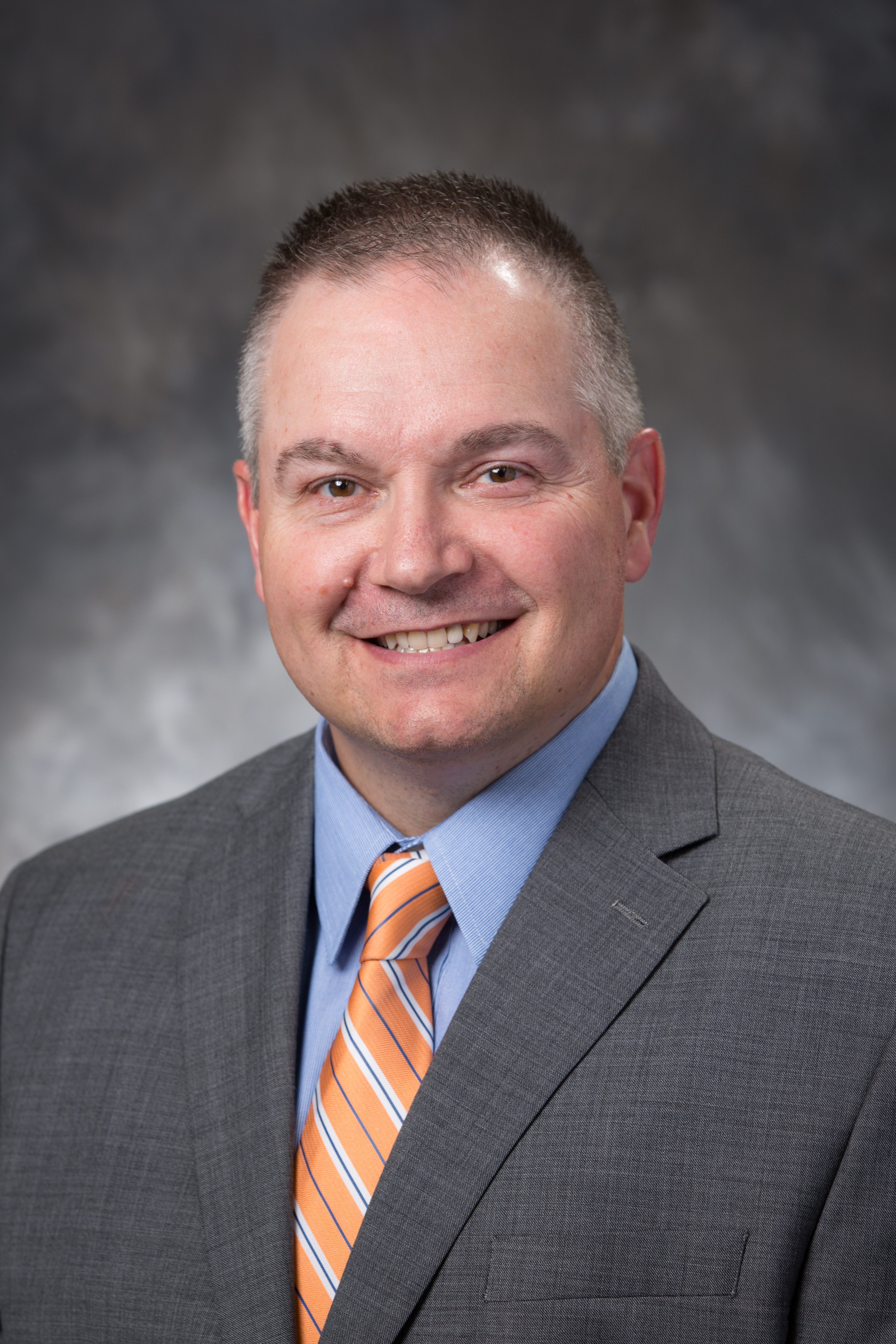 Dave WardDave Ward became the President and CEO of the Tommy Nobis Center in October 2015. He has a proven history of programmatic and organizational success with a strong focus on building new programs from the ground up. Prior to joining the Tommy Nobis Center, Dave served as executive Vice President of Mental Health and Family Services for the Wounded Warrior Project after serving as Warriors to Work Director and Economic Empowerment Executive Vice President. He also held roles as Executive Director of Big Brothers Big Sisters, Regional Director of the Make-A-Wish Foundation and Regional Vice President of Best Buddies International. Dave is a 2020 Leadership Atlanta graduate who previously served on the Georgia Employment First Council. He has a Bachelor's degree in sociology and criminal justice from Bluffton College and a master's degree in rehabilitation counseling from Bowling Green State University. A native of Bowling Green, Ohio, Dave now resides in Kennesaw with his wife, Priscilla, their son Cohen, and their daughter Callie. During football season, Dave can be found passionately cheering for the Pittsburgh Steelers.
Dave WardDave Ward became the President and CEO of the Tommy Nobis Center in October 2015. He has a proven history of programmatic and organizational success with a strong focus on building new programs from the ground up. Prior to joining the Tommy Nobis Center, Dave served as executive Vice President of Mental Health and Family Services for the Wounded Warrior Project after serving as Warriors to Work Director and Economic Empowerment Executive Vice President. He also held roles as Executive Director of Big Brothers Big Sisters, Regional Director of the Make-A-Wish Foundation and Regional Vice President of Best Buddies International. Dave is a 2020 Leadership Atlanta graduate who previously served on the Georgia Employment First Council. He has a Bachelor's degree in sociology and criminal justice from Bluffton College and a master's degree in rehabilitation counseling from Bowling Green State University. A native of Bowling Green, Ohio, Dave now resides in Kennesaw with his wife, Priscilla, their son Cohen, and their daughter Callie. During football season, Dave can be found passionately cheering for the Pittsburgh Steelers.
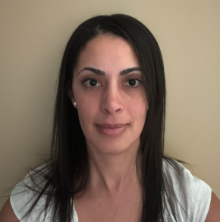 Tais KayserTais Keyser is a wife and proud mother of three boys, two of whom have autism. She currently works as a Care Coordinator for Adult Disability Medical Healthcare (ADMH) and is passionate about helping people with disabilities to find services and to advocate for themselves. In the Spring of 2024, Tais completed her training with the Georgia LEND program through the Center on Leadership and Disability Program at Georgia State University. She currently attends the Care Fellowship and is a Certified Peer Specialist Parent through the Georgia Department of Behavioral Health and Developmental Disabilities. Tais has worked as a supporting parent for Parent2Parent of Georgia since 2017.
Tais KayserTais Keyser is a wife and proud mother of three boys, two of whom have autism. She currently works as a Care Coordinator for Adult Disability Medical Healthcare (ADMH) and is passionate about helping people with disabilities to find services and to advocate for themselves. In the Spring of 2024, Tais completed her training with the Georgia LEND program through the Center on Leadership and Disability Program at Georgia State University. She currently attends the Care Fellowship and is a Certified Peer Specialist Parent through the Georgia Department of Behavioral Health and Developmental Disabilities. Tais has worked as a supporting parent for Parent2Parent of Georgia since 2017.
New IPSE Data Analyst Contractor
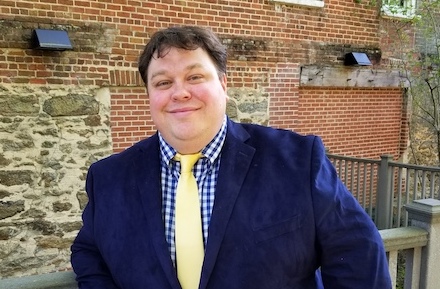 Stephen McGarityStephen McGarity is GCDD’s new Inclusive Post Secondary Education (IPSE) Data Analyst. His role will be analyzing the current method of data collection for GCDD and conceptualizing new and better ways to collect the data. Additionally, he is an Assistant Professor of Social Work at the University of Tennessee with over 12 years of experience in data analysis, policy evaluation, and program development. His research primarily focuses on the intersection of poverty, disability, wealth inequality, and social protection. His work has examined key issues such as financial capability, financial exclusion, and predatory lending among people with disabilities. Recently, his research has expanded to explore the economic impact of disability in both the U.S. and Europe.
Stephen McGarityStephen McGarity is GCDD’s new Inclusive Post Secondary Education (IPSE) Data Analyst. His role will be analyzing the current method of data collection for GCDD and conceptualizing new and better ways to collect the data. Additionally, he is an Assistant Professor of Social Work at the University of Tennessee with over 12 years of experience in data analysis, policy evaluation, and program development. His research primarily focuses on the intersection of poverty, disability, wealth inequality, and social protection. His work has examined key issues such as financial capability, financial exclusion, and predatory lending among people with disabilities. Recently, his research has expanded to explore the economic impact of disability in both the U.S. and Europe.
Stephen began his career as a direct care provider for individuals with intellectual and developmental disabilities (I/DD), working closely with adults to support their independent living in the community. He later became a Senior Support Coordinator, overseeing a team of direct care workers. In addition to his professional roles, he has served on the Board of Directors for Georgia Options, a nonprofit focused on helping people with I/DD live independently.
In his academic work, Stephen has led and collaborated on numerous research projects related to disability and poverty. His passion for combining data with advocacy has driven his efforts to highlight the extra costs and economic challenges that individuals with disabilities face. Stephen’s deep understanding of disability advocacy, combined with his extensive experience in data analysis, positions him to effectively support GCDD’s mission by utilizing data to drive informed decision-making and promote meaningful policy change.
In his free time, Stephen enjoys spending quality time with his two boys, often exploring new adventures together. When he's not with his family, he can be found woodworking in his garage, catching a movie, or searching for the perfect cup of coffee.
New Public Policy Fellow
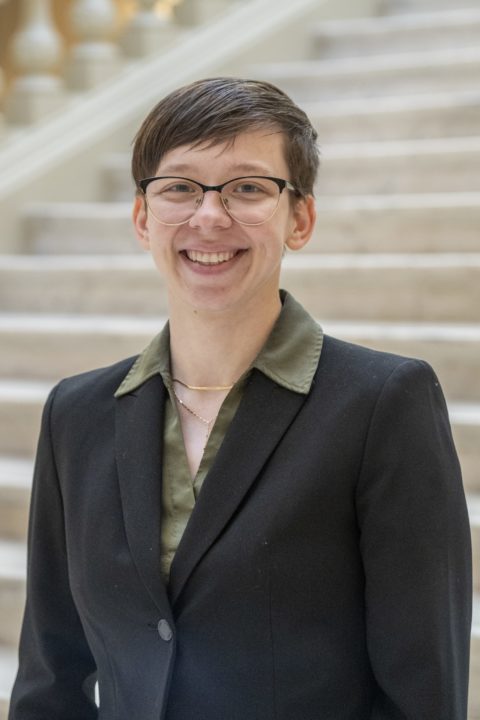 Leah SollerLeah Soller is a Political Science major in her senior year at Georgia State University (GSU). During her time at GSU, she has found opportunities to advocate for herself and other students with disabilities to help GSU become a more accessible and inclusive school. Leah is a part of a group that, for the last couple of years, has been pushing to create and institute an accessibility map to increase the accessibility for all students on the GSU campus. Additionally, she is currently the president of a club she cofounded over a year ago called DREAM (Disability, Rights, Education, Advocacy, and Mentorship), where the club members have created a community for students with disabilities and allies on the college campus.
Leah SollerLeah Soller is a Political Science major in her senior year at Georgia State University (GSU). During her time at GSU, she has found opportunities to advocate for herself and other students with disabilities to help GSU become a more accessible and inclusive school. Leah is a part of a group that, for the last couple of years, has been pushing to create and institute an accessibility map to increase the accessibility for all students on the GSU campus. Additionally, she is currently the president of a club she cofounded over a year ago called DREAM (Disability, Rights, Education, Advocacy, and Mentorship), where the club members have created a community for students with disabilities and allies on the college campus.
During the 2024 legislative session, Leah was involved in GLIP, the Georgia Legislative Internship Program, where she was the legislative intern for Chairwoman Sharon Cooper (R - District 45). During her internship, Leah shadowed Chairwoman Cooper and was able to assist Rep. Cooper with her committee and the bills she had sponsored. This gave Leah knowledge and experience of the legislative process. Through the internship she became acquainted with GCDD and the agency’s advocacy work at the Georgia State Capitol.
Leah is very excited for the opportunity to be GCDD’s 2024-2025 Public Policy Fellow, which will allow her the opportunity to continue and improve on the advocacy work she has done in the past that will build her future career.
Raising Teens with Disabilities: GCDD Council Member Shares Her Story
by Brook Kubik
GCDD had the opportunity to talk with newly elected Council Member and Executive Committee Member Brook Kubik about the joys and challenges of raising a teenager with a disability, from getting her son Max involved in social activities, to getting supports for him, to Max learning independence. Her story can benefit families in similar situations who are looking for answers, resources, and even examples of raising teens with disabilities. Read on to learn how Brook has navigated the space of being a mother of a teenager with disabilities.
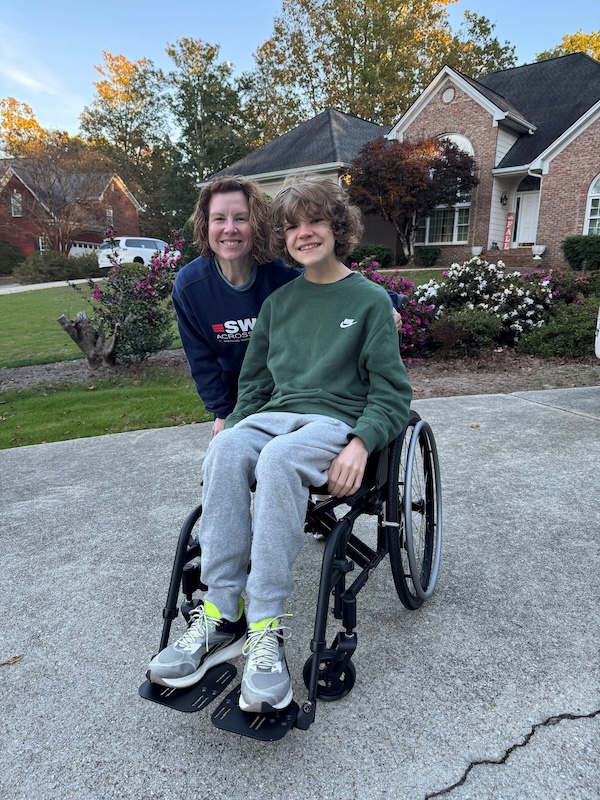 Brook Kubik and her son MaxTell us about your experiences with raising a teenager with a disability.
Brook Kubik and her son MaxTell us about your experiences with raising a teenager with a disability.
Raising teens with disabilities can be both a challenging and deeply rewarding experience. The advice I would offer to parents in this situation is deeply rooted in focusing on social/emotional supports and development, as well as normalizing the disability. Adolescence is an extremely challenging time for everyone. It is a time of self-discovery and forming peer relationships, realizing that navigating the world differently can be even more complex for a teenager with disabilities.
My family and I have always encouraged my son, Max (16 years old), to pursue friendships, join activities and to take part in community events. When Max was younger, we noticed that he really had some talents in the world of theater. I began encouraging that talent and taking him to auditions for community theater productions. Max has autism as well as a physical disability, a neuromuscular disease called Hereditary Spastic Paraplegia (HSP). We found that the theater world was extremely inclusive and really embraced Max for who he was, and never tried to make him be someone or something that he was not. He was truly celebrated and loved for his unique abilities, and all the focus was taken off of what he was not or what he could not do, shifting to what he was and all the talent and special/unique abilities that he possessed. This really helped Max to take pride in his unique ability and to be proud of who he is.
As Max has gotten older, he has fallen in love with the sport of swimming. He is currently a club swimmer at Swim Atlanta, and he competes on the national level with Team USA as a para classified swimmer. Max shows up to practice every day and does the same workouts and sets that his peers do, with some modifications to accommodate his HSP. His teammates have grown up around Max, and truly just see him as one of them, not as a kid with disabilities. I truly believe that encouraging him to join a team and to show up every day and put in the hard work in the pool has helped him cope with his changing body and to form the belief that the only person that can limit us is ourselves.
Typically, teenagers are going through changes in their development and want to be more independent from their parents. How are you navigating this space today?
I think that letting go of the control and dependence of a child with disabilities is an emotionally hard thing to do for most parents. We, as parents, have spent our whole lives being caregivers and advocates for our children to ensure that they have equal rights as their non-disabled peers. So, when a child is taking that leap into becoming independent, it comes with feelings of fear of the unknown and loss of what may be the one reason that you get up and fight every day. College is looming in our near future, so I feel this on a very personal level.
There are several things that I try to do in order to help Max become more independent. The first thing I did was encourage self-expression by helping him learn how to become his own advocate. I really feel like this helps give him his own voice and builds confidence in his own abilities. I also try to provide Max with opportunities to make his own choices, whenever possible, to foster autonomy and decision-making skills. I would allow him to solve his own problems, while guiding him through the process of finding his own solutions. Throughout our lives we all will run into barriers or roadblocks, but by teaching Max how to problem solve I hope that this provides him with a sense of resiliency.
Please share your thoughts, wisdom, even empathy that parents may benefit from about your lived experiences raising a teen with a disability.
Raising a teen with a disability can be an extraordinary journey, one that is often marked by both challenges and profound moments of growth. I don’t claim to be the expert on parenting a child with disabilities, but throughout my years there are a few things that I have learned:
- Embrace the uniqueness of your teen. I truly feel that it is so important to nurture the person beyond the diagnosis. Ask yourself: What are their dreams? What excites them? What makes them laugh, etc.? These are the things that you lean into during challenging times.
- Patience is a necessity! Practice active empathy through patience. Growth and development sometimes feel slower but remember that small victories add up. Patience is being present with your child through the hard moments, celebrating progress together, and being there for them during setbacks.
- Set realistic expectations for your child and yourself. Your child will likely not follow the same trajectory as their peers, and that is okay. Always celebrate growth and effort, not just the outcomes. In the same fashion, try to remember that you are doing your best, and that “best” will change every day. Be kind to yourself. Parenting a teen with a disability can be exhausting – it’s okay to acknowledge your limits.
- Love them for who they are. All their complexities, their triumphs, and their struggles. Your unconditional love will help them to realize their worth regardless of the challenges they may face.
- You do not have to walk this journey alone. Having a child with a disability or even multiple disabilities can feel isolating, lonely, and overwhelming. You may feel as if there is no one out there that understands your journey. Connect with others in similar situations through support groups, community organizations, and even online communities. Sometimes simply connecting with someone who understands where you are coming from can make all the difference in the world.
- Find the humor along the journey. Truth be told, I think that I often deflect or diffuse situations through humor. If I can laugh at something or make someone else laugh during a particularly tough time it helps make what is happening a little more palatable. Embrace the chaos!
At the end of the day raising a teen with a disability is a chaotic, beautiful, and sometimes unpredictable journey. It can be messy, exhausting, joyful and heartbreaking all at once. However, it is a journey full of potential and growth for everyone who comes along for the ride. We are all better people for having walked alongside others in this path of life.
What are some of the day-to-day nuances that you can speak about when raising a teenager with a disability that parents in similar situations can benefit from?
When my son was first diagnosed with autism, a very good friend of mine gave me a great piece of advice: stay organized and manage transitions. Structure is key, therefore providing consistent routines helps provide security and predictability, which are especially important for adolescents and teens with intellectual and developmental disabilities. In our house we prepare for changes by talking about changes in advance and rehearsing what to expect to alleviate the stress of transitions.
Teenagers with disabilities also need to be taught self-advocacy. They need to understand their disability and how it affects them so that they can appropriately advocate for themselves in any environment (school, social settings, doctor appointments, etc.).
One final nuance of raising children with disabilities is that you must learn to balance empathy and discipline. After Max was first diagnosed, I would find myself making excuses for his bad behavior and being too lenient. I had to learn how to balance empathy with appropriate discipline so that he was accountable for his actions and learned how to take responsibility for his behavior.
Teenagers want to be independent. Please speak on how to give your teenager flexibility, freedom, and room to grow, while also maintaining control over them.
To help teens with disabilities move towards being independent, thriving adults, you must start out by setting clear expectations with flexibility. Max knows that there are non-negotiable boundaries/rules that we set for his safety and well-being. However, he does have choices that exist within those boundaries. These choices allow him to experience autonomy and to advocate for himself.
Along the journey to independence, we check in with Max often to see how he feels or if he has any concerns. Keeping the lines of communication open is so important in this journey of self-discovery because it allows you to gradually release control by allowing them to take on more responsibilities you feel they are ready for.
Finally, the most important thing that you can do for your child is allow them to fail. A great coach once told Max to turn his losses into lessons. This is true not only in sports, but in life as well. Teenagers with disabilities need the opportunities to try new things or just try things on their own, and when they experience failures, family is there to provide a safety net. The key to encouraging independence and growth is to ensure that your child feels that he or she has a voice and feels empowered while still providing the necessary structure and support to keep them safe and moving forward on their journey to independence. 
Promoting Inclusion in Georgia: A Visit to Woodright and Shaw Industries
In September, Charlotte Densmore, GCDD’s Public Policy Director, had the opportunity to visit Woodright and Shaw Industries in Cartersville, Georgia, a company at the forefront of promoting competitive integrated employment for individuals with intellectual and developmental disabilities (I/DD). Five years ago, Woodright Industries took the significant step of ending their use of 14(c) certificates—licenses that previously allowed employers to pay employees with disabilities below the federal minimum wage. By voluntarily ending these certificates, the company underscored its commitment to fair pay and full inclusion.
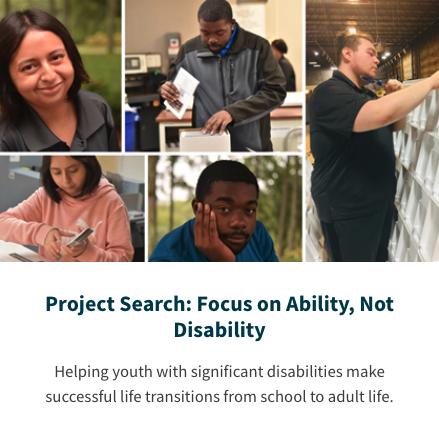 Accompanied by GCDD’s Media Relations Director, they toured the carpet factory, observing first-hand the skill and dedication of employees who have been placed in roles that align with their unique strengths. One artistically gifted individual was thriving in a design role, while another with a knack for logistics had found a perfect fit in the mailing department. Through these placements, Woodright and Shaw Industries exemplify how thoughtfully matching individuals to jobs can create win-win situations for everyone involved.
Accompanied by GCDD’s Media Relations Director, they toured the carpet factory, observing first-hand the skill and dedication of employees who have been placed in roles that align with their unique strengths. One artistically gifted individual was thriving in a design role, while another with a knack for logistics had found a perfect fit in the mailing department. Through these placements, Woodright and Shaw Industries exemplify how thoughtfully matching individuals to jobs can create win-win situations for everyone involved.
One aspect of the visit stood out above all else: the profound impact that employees with I/DD have on workplace culture. Nearly every person we spoke with shared how working alongside these employees had changed their lives and the culture of their team, fostering a workplace environment filled with empathy, teamwork, and a genuine spirit of collaboration.
As an added highlight, they visited the on-site Project SEARCH classroom, a remarkable program dedicated to training young adults with I/DD for the workforce by equipping them with the skills they need to thrive in competitive jobs. This hands-on approach demonstrates how much companies can gain by embracing inclusive hiring practices and ensuring that everyone—regardless of ability—can contribute meaningfully to the workforce.
Our visit to Woodright and Shaw Industries serves as a reminder that inclusion is not just about providing opportunities for those with disabilities. It is also about redefining workplace culture. At GCDD, we are hopeful that other companies will look to these pioneers as a model for the future of employment in Georgia.
“We are creating something in the community to help boost the skill sets and confidence of individuals with intellectual and developmental disabilities,” said Sonja J. Law, MS, DDP, Director/Behavior Specialist at Woodright Industries. “Woodright has done more job placement work beginning with two to three placements to boost and improve competitive supportive employment, placing individuals in the community with a job through job matching and career assessments.”
According to Law, who was the tour guide during the site visit, the purpose of the program, which has been going on for over five years, is to find and determine individuals’ wants and needs and to increase their confidence. This is achieved by providing job coaching and natural support centered to the individual, including a skills instructor, job coaches, and mentors. This year, the program has seven interns. The support for individuals in the program also includes behavioral support and transportation. Additionally, Law said Woodright Industries has collaborated with Barnsley Gardens, Texas Roadhouse, and other employment sites in Cartersville to develop its workforce for those in the program. The key is building and having relationships in the community. When Law came on board at Woodright Industries, those community relationships were enhanced.
“The people we serve are just like you and me. I want more for them and I don’t want the people we serve to make less than minimum wage,” said Law. “The staff at Woodright are generally trying to help the individuals in the program. We can put your son or daughter in a job that matches their skills. We are not here to put interns into environments to be taken advantage of. It’s about building skills and transferring them into something that works for them.”
In October, Woodright and Shaw Industries was the 2024 Award Recipient of Advancing Employment’s National Disability Employment Awareness Month (NDEAM) Employment Agency of the Year. For more information about Project Search sites in Georgia, visit Project Search in Georgia.

Calendar of Events
Uniting for Change - COMMUNITY STRONG Series
- December 2, 2024, 4:00 PM – 5:00 PM
- December 9, 2024, 4:00 PM - 5:00 PM
- December 16, 2024, 4:00 PM - 5:00 PM
COMMUNITY STRONG, led by self-advocates for self-advocates, is a weekly Zoom gathering about having fun and spending time with each other!
For more information and to sign-up: Community Strong
Parent2Parent
Now/Comp Waiver(s): What you need to know!
- Wednesday, December 11, 2024 11:00am - 12:00pm
The New Options Waiver (NOW) and Comprehensive Supports Waiver (COMP) provide community-based services to support individuals with intellectual and/or developmental disabilities seeking to thrive in their home and/or community. What do you need to know about applying, accessing and supporting families in need? Join on Zoom for a comprehensive step-by-step guide to navigating the maze from application to planning list to waiver service entry.
Contact: Amanda Brown
Email:
Phone: (678) 736-7314
Register here.
Find more events at our online Calendar of Events.
